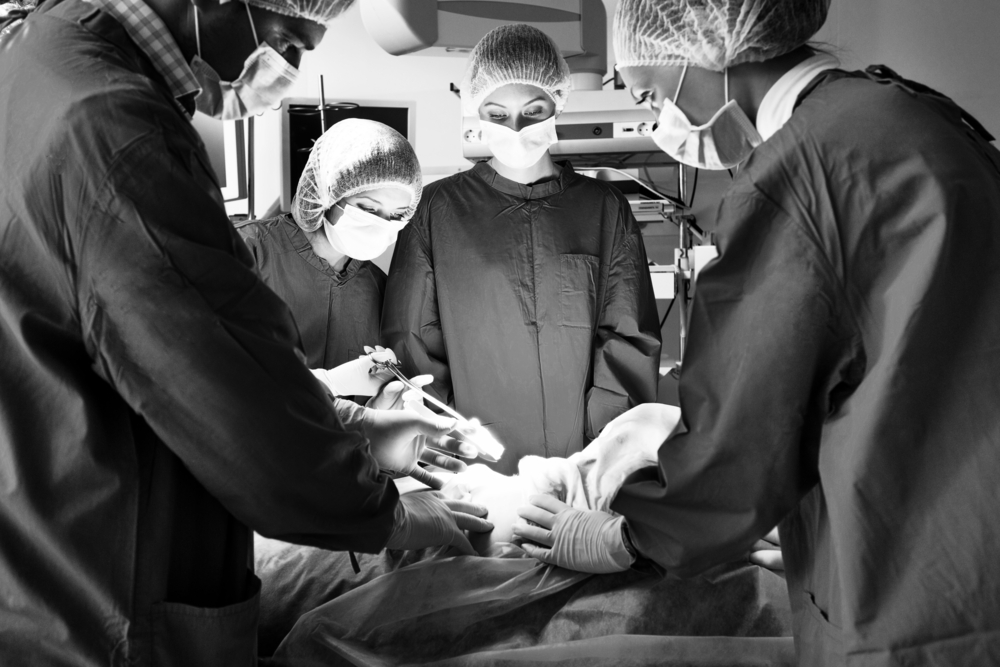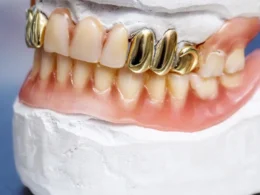Chances are you’ve already put a lot of thought into your decision to undergo a cosmetic procedure. It’s just not the kind of thing people simply rush into. And for good reason too.
Because as wonderful as plastic surgery can be for both your physical appearance and overall confidence, there’s plenty else to think about as well: which type of procedure will help you meet your aesthetic goals, the amount of recovery time you’ll need, what you’re going to say to the people around you, and of course, the single most important factor in one’s personal plastic surgery journey – the doctor you’re entrusting to do the work. After all, as the old saying goes, half of the doctors practicing today graduated at the bottom of their class.
Now it’s true, most of these considerations are applicable to pretty well any medical procedure, be that something critical like a heart transplant or something arguably non-essential like, say, getting butt implants so your behind looks a little more Kardashian. Except when it comes to cosmetic procedures you need to be extra vigilant, because in some scenarios the practitioners advertising their services aren’t even plastic surgeons to begin with.
So what does “board-certified” mean, exactly?
Plastic and cosmetic surgeons tend to get lumped in together a lot, but in reality there’s a monumental difference between the two. In fact, the American Board of Medical Speciaties (ABMS) – the largest physician-led specialty certification organization in the United States – doesn’t even regard “cosmetic” surgery as a legitimate specialty, and only recognizes the American Board of Plastic Surgery (ABPS) as a certifying body for plastic and reconstructive surgeons. Bona fide ABPS-certified plastic surgeons go through years of rigorous, hands-on training before they’re allowed to practice. Medical school lasts 4 years, followed by a 6-year residency in plastic surgery. Some plastic surgeons then carry on for an additional 1-2 years of fellowship medical training.
So it should follow that all you really need to do is make sure the provider you choose is a genuine plastic surgeon who has his/her ABPS board-certification, right? Nope, wrong. Quite wrong, actually. Not to say that this isn’t a good place to start, because it is, but there’s still a bit more to it than that.
You see, there’s a lot of money to be made in cosmetic surgery, often more than what your average GP brings home every year. And in most States, so long as you already have a medical license you can take a weekend course in cosmetic surgery and start advertising your services right away. I don’t know about you, but I sure wouldn’t want to be that guy’s first rhinoplasty patient Monday morning.
So while it’s true the doctor who became a cosmetic surgeon after a one weekend seminar would never earn a legitimate certification, they could still get themselves certified by any number of lesser-known organizations with official sounding names.
If you have a medical license you can take a weekend course in cosmetic surgery and start advertising your services right away. I don’t know about you, but I sure wouldn’t want to be that guy’s first rhinoplasty patient Monday morning.
ASPS vs. ASAPS
The American Society of Plastic Surgeons (ASPS) is the largest plastic surgery specialty organization in the world, representing 94% of all board-certified plastic surgeons in the United States. Every member of the ASPS has been certified by the American Board of Medical Specialties (ABMS), the organization that oversees all medical specialty boards in the United States.
To obtain that certification, a doctor must have completed a minimum of 4 years of medical school and have at least 6 to 9 years of surgical training, with their final years dedicated to plastic surgery. They must also be uniquely qualified to operate on all areas of the body. Simply put, in order to be certified you really need to know your stuff.
The American Society for Aesthetic Plastic Surgery (ASAPS) is a professional organization of board-certified plastic surgeons who are solely dedicated to aesthetic procedures of the face, nose, body and breasts. Not all ASPS members belong to ASAPS, but all ASAPS are also ASPS, and therefore board-certified by the ABMS.
Another professional organization you can trust is The American Academy of Facial Plastic and Reconstructive Surgery (AAFPRS). A majority of its members are certified by the American Board of Otolaryngology and are specifically trained in face, head, and neck surgery. Others are certified in plastic surgery, ophthalmology, and dermatology.
Finally, there is one other group of professionals you can trust to be competent working with some of the less-invasive cosmetic treatments such as Botox, fillers, and laser skin treatments, and that group is dermatologists. Dermatologists receive their board certification from The American Board of Dermatology (ABD), one of 24 medical specialty boards that make up the ABMS.
By contrast, anybody with four years of med school behind them can open up an office and call themselves a cosmetic surgeon, even if they’ve never performed surgery outside of med school, let alone a specialized cosmetic procedure. It might be unethical, but it’s all perfectly legal.
So when a potential provider says that he/she is “board certified”, understand that most doctors are board certified in some medical specialty or another – it’s just the doctor certified in urology isn’t necessarily the guy you want for your breast augmentation.
Other important considerations
Just because a surgeon is board-certified doesn’t automatically mean they’re the right doctor for you. There are plenty other factors to consider when deciding upon the right provider. Here’s four of the more important ones to add to your checklist.
1. Experience
How much experience do they have performing the specific procedure you require? It doesn’t make much sense to visit a cosmetic surgeon renowned for rhinoplasty when you’re looking to liposuction away some belly fat. Which isn’t to say they wouldn’t do an adequate job with your lipo, but it only makes sense to visit the doctor who specializes in it, or for whom liposuction comprises a large part of their practice.
Different areas of plastic surgery require different skills. So as a general rule, at your initial consultation ask the provider how much training they have in the procedure you want done, how long they’ve been doing it, and a rough estimate of how many times they’ve performed it.
2. Sharing aesthetic sensibilities
Beauty is subjective, and what seems attractive to one person could be repulsive to the next. Which is why you ideally want to find a surgeon who shares your aesthetic sensibilities. But how do you determine such a thing? If you’re looking for, say, chin implants, the best thing to do is ask to see some before and after photos of patients who have had the same procedure.
If possible, ask the provider you’re interviewing if they have any before and after photos of patients who share similar features with you as well. Even if the doctor shows you before and after photos of, say, one of his mommy makeover patients when you’re looking for a breast augmentation, it should still give you a rough idea of his aesthetic sensibilities. Take note of how consistent the results are for his patients who’ve had the same procedure you’re considering.
The best surgeons will be proud to show you photographic evidence of their work, and as such should have many photos of the surgery you’re interested in on hand, ideally photographed from three different perspectives, all with similar lighting and distance from the camera.
3. Personality and bedside manner
It might sound trite but between all the consultations, the surgery itself, and the aftercare, you’ll be spending a fair amount of time with the practitioner you decide upon, so it would be nice if you liked them personally as well.
Most important though, is that you be perfectly comfortable with your surgeon, enough so you aren’t afraid to ask them questions you’re worried could make you look stupid. After all, who cares? How are you supposed to know any of this stuff if you don’t ask? And if the doctor you’re interviewing starts being condescending towards you, then fine, problem solved, you’ll immediately know this isn’t the person you’ll be hiring for the job.
And it goes both ways. This is what Columbia, MD board-certified plastic surgeon Dr. Eric Chang had to tell me on the doctor-patient relationship when we spoke last week: “To my mind, choosing a surgeon is akin to starting a relationship. Find someone who listens to you, who connects with your ideas, and who you trust will be with you even if things don’t go perfectly. For me, I’m looking for the same thing in a patient. If I feel like we aren’t communicating well, I’m not interested in operating on you. It should be a two way relationship in this regard.”
Choosing a surgeon is akin to starting a relationship. Find someone who listens to you, who connects with your ideas, and who you trust will be with you even if things don’t go perfectly.
Dr. Eric Chang
And remember, while online user reviews and personal recommendations can certainly be helpful, even the most experienced, talented surgeon isn’t always going to be the right doctor for every patient. Again, much of it comes down to communication. If you can candidly discuss your goals, agree on realistic expectations, and be open to each others ideas, the chances you’ll walk away from the experience satisfied are a lot greater.
Dr. Eric Mariotti, a board-certified plastic surgeon with a practice in Walnut Creek, CA with whom I also spoke for the purposes of this article, agrees that communication is key. “During that initial meeting, you should get the sense that the surgeon takes the time to understand what is important to you, and that they are listening to you.”
4. Price
The cost of any cosmetic procedure is obviously an important consideration, and given how prices can vary from surgeon to surgeon and on which region of the country you live in, you want to make sure you’re getting the best deal available to you. So don’t be shy about discussing the costs up-front, and never make a commitment without the price being firmly established in advance.
As a rule of thumb be wary of fees that seem too low, or conversely, very high. This doesn’t mean that the doctor with the lowest price won’t do every bit as good a job as a more expensive practitioner, but you still need to proceed with caution. The last thing you want is a cheap, poorly performed operation that leaves you needing to go through it all over again just to fix the mistakes of the first one.
At the same time, beware of these super pricey surgeries performed by so-called “celebrity” doctors who care more about your money than they do about your satisfaction with their work. Paying too much for a procedure is absolutely no guarantee you’ll emerge from it happy with the results. If anything, you’re more likely to be disappointed because you’ll have had such high hopes that when the results turn out to be no better (or possibly worse) than what a more modestly priced surgeon could have done for you, you could walk away feeling cheated – and rightly so.
Nevertheless, although cost is undoubtedly an important consideration, it’s far wiser to base your final decision on a doctor’s professionalism, credentials, experience, and the level of trust and communication you have with them over their price. Finally, don’t forget that there are few, if any, health insurance policies that cover non-essential plastic surgery procedures, so when that bill comes in you’ll be on your own to cover it. In light of this inconvenient truth, however, many providers have arrangements enabling their patients to pay their bills in monthly installments.
Your checklist of questions
Once you start consulting with providers in your area bring along this checklist and ask yourself the following questions after each appointment
- Does this surgeon have the qualifications to perform the procedure I’m considering?
- Do I like this doctor personally? Am I ready to deal with this person on a regular basis for the next several months – or longer?
- Did they review my full medical history in detail to be sure there won’t be any otherwise avoidable complications?
- Did this doctor really listen to me when I told them what I wanted and why I want it done?
- Does this physician understand and share my sensibilities about what makes a person attractive or unattractive?
- Did this doctor make sure I left their office with a thorough understanding of all the options available to me, both surgical and non-surgical? Would they care if I didn’t?
- Were they able to supply me with all the before and after photos I asked to see? Were these photos actually impressive?
- Was their office clean, with a polite, professional, and accommodating staff to serve me?
- Was I pressured to proceed with surgery? Were there any questionable attempts to up-sell me to expensive procedures I’m not sure I really need or even want?
If you follow the suggestions put forth in this article and trust your instincts when interviewing potential providers, your chances of finding the right doctor are excellent. Good luck with your search.









